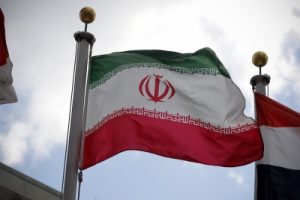Trouble For Iran

The escalating conflict between Israel and Iran has plunged the Middle East into deeper turmoil, with ramifications stretching far beyond the region. The latest round of hostilities, marked by Israel’s targeted strikes on Iran’s nuclear sites and Iran’s retaliatory ballistic missile launches, has intensified fears of a broader war. The situation is further complicated by the ongoing crisis in Gaza, the shifting dynamics of air superiority over Tehran, and the geopolitical maneuvering of global powers, including the United States. The Middle East has long been a tinderbox of geopolitical tensions, but the latest Israel-Iran conflict threatens to ignite a full-scale regional war. Israel’s Operation Rising Lion, launched on June 13, 2025, struck key Iranian nuclear and military sites, including Natanz and Fordow, killing top Iranian military leaders and nuclear scientists. Iran responded with a barrage of ballistic missiles, some of which breached Israel’s defences, striking Tel Aviv and Haifa. The exchange of fire has led to significant civilian casualties on both sides, with Iran reporting over 224 deaths and Israel confirming 24 fatalities.
One of the most striking developments in this conflict has been Israel’s rapid establishment of air superiority over Tehran. Within 48 hours of launching its offensive, Israel claimed to have dismantled a significant portion of Iran’s air defences, allowing Israeli fighter jets to operate freely over Iranian airspace. This shift has given Israel a strategic advantage, enabling it to conduct further strikes with minimal resistance. The loss of air superiority has severely weakened Iran’s ability to defend its territory and its long-term military capabilities. Israel’s decision to strike Iran’s nuclear facilities marks a significant escalation. The attacks on Natanz, Fordow, and Isfahan were aimed at crippling Iran’s ability to develop nuclear weapons. While Israel has long viewed Iran’s nuclear ambitions as an ‘existential threat’, the direct targeting of these sites has drawn international condemnation. The International Atomic Energy Agency (IAEA) has warned of potential radiological risks, though no elevated radiation levels have been detected so far. Iran, meanwhile, has vowed to rebuild its nuclear infrastructure, signaling that the conflict is far from over.
US President Donald Trump’s abrupt departure from the G7 summit in Canada has added another layer of complexity to the crisis. Trump, who has historically been a staunch supporter of Israel, left the summit early, citing the escalating conflict. His administration has signaled tacit approval of Israel’s actions, with Trump himself warning Iran to evacuate Tehran. While European leaders have called for de-escalation, Trump’s stance suggests that the US may take a more active role in supporting Israel’s military campaign. Speculation is mounting over whether US aircraft based in Qatar will participate in Israel’s strikes against Iran. Reports indicate that American military assets, including aerial refueling tankers, have been repositioned closer to the Middle East. The presence of US forces in the region raises questions about Washington’s true level of engagement. If American air power was used with Israeli operations, it would mark a significant escalation. Beyond the immediate military exchanges, the Israel-Iran conflict has far-reaching consequences. The crisis in Gaza remains unresolved, with civilians on all sides caught in the crossfire. The conflict has also disrupted global trade routes, particularly in the Strait of Hormuz, a vital artery for oil shipments. Additionally, the war threatens to derail nuclear negotiations between Iran and Western powers, further isolating Tehran on the global stage whereby it could easily turn up as another Moslem rogue state.
The latest Israel-Iran conflict is a dangerous escalation that could reshape the Middle East’s geopolitical landscape. Israel’s air superiority, its strikes on nuclear sites, Iran’s missile retaliation, and Trump’s unwavering support for Israel all point to a prolonged and volatile confrontation. Whether the US will deepen its involvement remains uncertain, but the potential for a broader war looms large. As the world stands worried about the crisis, the fate of the region hangs in the balance.
News